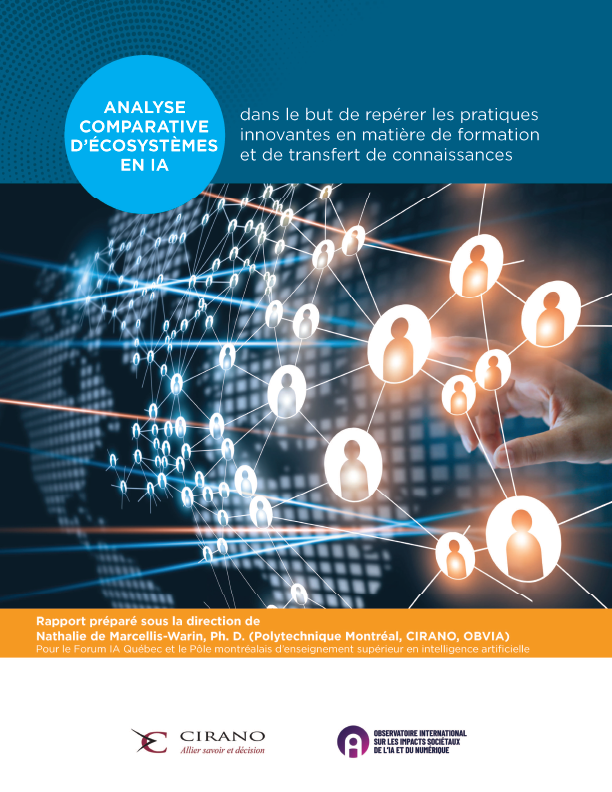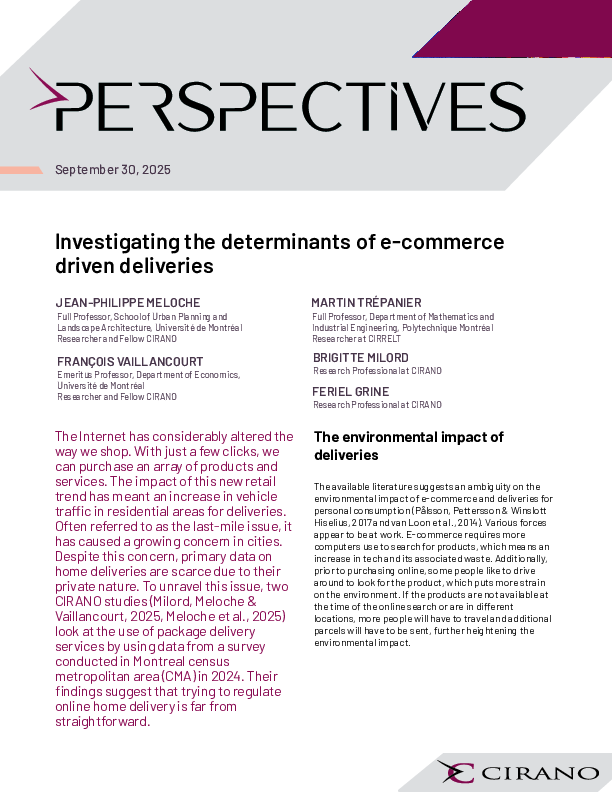Analyse comparative d’écosystèmes en IA dans le but de repérer les pratiques innovantes en matière de formation et de transfert de connaissances
Read the executive summary of the report
The current challenges of AI ecosystems are characterized by a high demand for digital intelligence talent, a demand for training that meets market needs, the emergence of new job profiles, a growing demand for upgrading the skills of employed workers, and an adoption of AI by companies that is still limited to certain sectors. This is what has motivated the implementation of numerous initiatives by educational institutions and other types of actors, both in terms of training and knowledge transfer.
For Quebec, the reports that were published in 2020 and 2021 as well as the interviews conducted with the actors of the AI ecosystem have provided an overview of the strengths and weaknesses. Quebec is recognized for its large AI research community and its positioning for responsible AI development. Many educational institutions have redesigned their programs to meet digital challenges and market needs. Concerted CEGEP-university initiatives have been put in place and applied research collaborations or the integration of internships have emerged. Several institutes and organizations are involved in supporting companies in the adoption of AI. However, the multiplicity of actors is often seen as an obstacle for companies. Many organizations are not using AI due to a lack of general understanding of AI and its applications and due to the difficulty of assessing their maturity level, identifying the necessary skills or training needs for employees.
In the context of this study, six main findings were made regarding existing innovative training and knowledge transfer practices based on the analysis of several AI ecosystems in several regions of the world. Based on these findings and on discussions with representatives of the Quebec ecosystem, we have identified certain avenues that could be recommended for Quebec.




